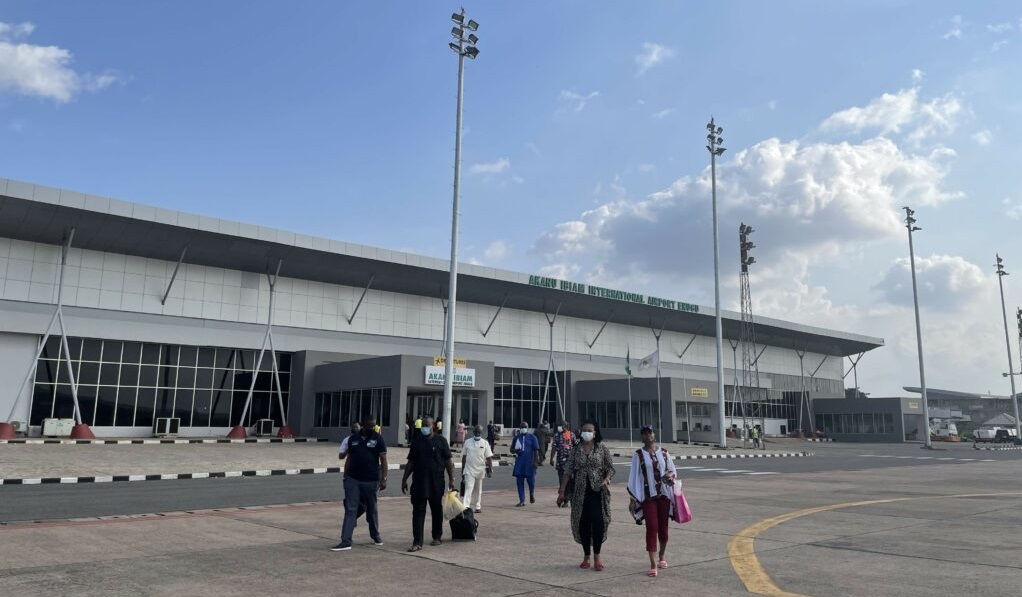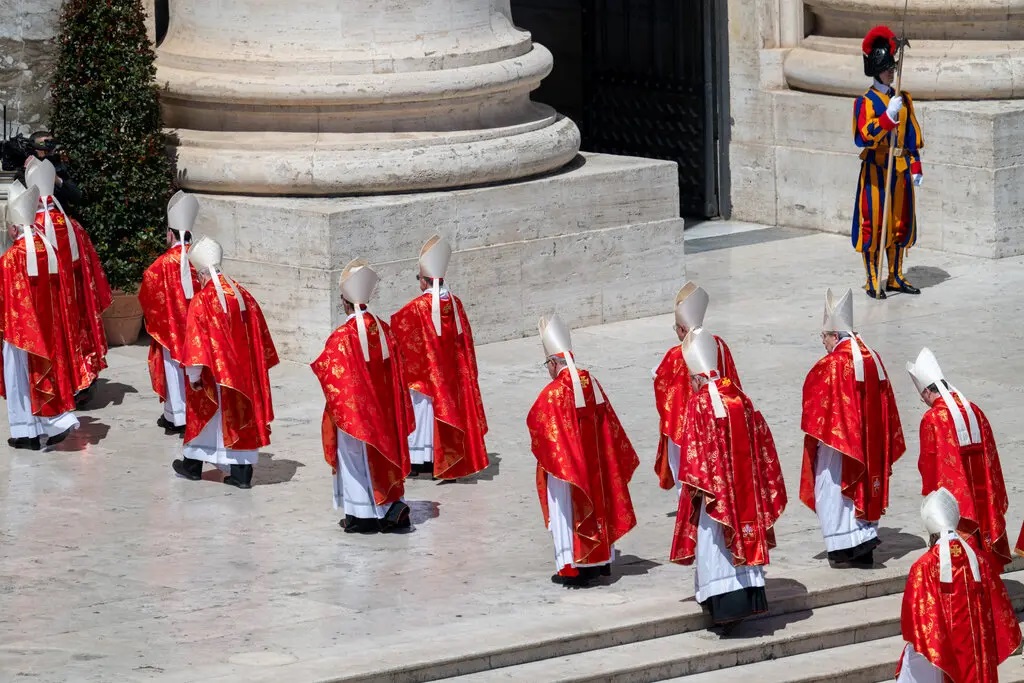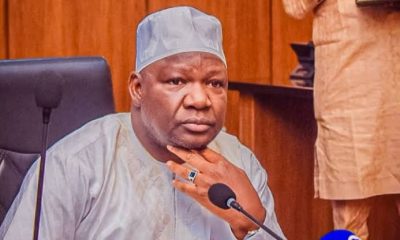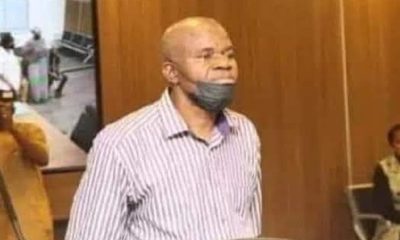News
LG autonomy: Chairmen, councilors who embezzle funds risk jail – AGF

The Attorney General of the Federation (AGF) and Minister of Justice, Lateef Fagbemi, (SAN) warned yesterday that local government chairmen and councilors who embezzle council funds do so at the risk of going to jail.
Fagbemi, who spoke in Abuja at the opening session of the validation meeting of the National Anti-corruption Strategy (NACS) Action Plan 2022-2026, said the efforts that led to the recent judgment on financial autonomy to local governments were not a waste.
Fagbemi observed that some have continually argued that unless the task of conducting local government election is transferred to another body, the Supreme Court judgment may not have any meaningful impact.
The AGF said his view has always been that such issues would be addressed when they arise.
He tasked the various anti-corruption agencies to be up and doing because they are required to oversight the deployment of funds at the Local Government level.
“I told them that when we get to the bridge, we will cross it. But one thing I keep saying is that the governors have immunity, but local governments chairmen do not have. The counsellors don’t have. So, it will be very easy to put them where they belong.
In any event, we need activities at the local government level. They are not to be over-sighted by anybody, except by the critical anti-corruption agencies – the Economic and Financial Crimes Commission (EFCC), the Independent Corrupt Practice and other related offences Commission (ICPC), the Nigerian Financial Intelligence Unit (NFIU), the police and others, when the need arises.
“And as often as the need arises, we will deal with that aspect.
“So, if a governor asks you to go and commit a crime and you accept, he will not follow you to Kuje or Kirikiri. No, you are on your own.
“So, this is a challenge to the anti-corruption agencies and I know that they are up to the task,” Fagbemi said.
He argued that it was not necessary to preach to those who will be at the helm of affairs at the local government level because they are expected to be able to read and write and differentiate right from wrong.
“You don’t have to preach to anybody. Those who would become Chairmen and Counsellors, at least they should be able read and write. They will know that it is a crime to steal and that if you steal, the penalty is there,” he added.
He said the vision of the NACS is to ensure “a Nigeria that is free of corruption for sustainable human development,” while the mission statement is “to provide a holistic national anti-corruption strategy for all sectors and stakeholders in the fight against corruption.”
The AGF recalled that the first NACS was for between 2017 and 2021, adding that the NACS Action Plan was developed, validated and adopted by relevant stakeholders on the 26th March, 2018.
He explained that at the expiration of the initial NACS, the Federal Executive Council (FEC) considered and approved the extension of the implementation of NACS 2017-2021 for another four years.
The AGF explained that the NACS Action Plan 2022 – 2026 is a product of series of consultation and collaboration between the 22 ministries, departments and agencies (MDAs) of the Federal Government with anti-corruption and accountability mandates.
He added that the framework for the NACS Action Plan implementation is focused on five pillars which serve as the driving force for both the public and private sector and the national and sub-national levels of government.
Fagbemi identified the five pillars to include prevention of corruption, public engagement, campaign for ethical re-orientation, enforcement and sanction and recovery and management of proceeds crime.
News
Nigeria Felicitates with South Africa on 31st Freedom Day Anniversary

By Gloria Ikibah
Nigeria has congratulated South Africa on the celebration of its 31st Freedom Day anniversary, marking more than three decades since the end of apartheid rule.
This was contained in a statement issued by the Ministry of Foreign Affairs, on Sunday in Abuja, the Minister, Ambassador Yusuf Maitama Tuggar, extended warm greetings to his South African counterpart, His Excellency Ronald Lamola, Minister of International Relations and Cooperation.
Ambassador Tuggar described the day as a reminder of the historic victory of democracy over apartheid and a celebration of the resilient and unified spirit that continues to shape South Africa’s journey.
“Nigeria and South Africa share a profound bond forged through decades of solidarity in the liberation struggle. As we reflect on this milestone, we recall Nigeria’s unwavering support for the anti-apartheid movement, including diplomatic, material, and moral contributions that underscored our commitment to justice and the ethos of pan-Africanism,” the statement read.
Highlighting the strong bilateral ties between the two countries, Tuggar emphasized the shared responsibility Nigeria and South Africa have in promoting peace, security, and inclusive development across the African continent.
He noted that as Africa’s two largest economies and democracies, there is a need to strengthen collaboration in areas such as trade and investment through the African Continental Free Trade Area (AfCFTA), as well as cultural exchanges and youth empowerment.
“Therefore, on this Freedom Day, we stand with South Africa in honouring the sacrifices of heroes like Walter Sisulu, Nelson Mandela, Govan Mbeki, Thabo Mbeki and recommit to working together to realize the vision of a prosperous, peaceful, and united Africa,” he added.
News
Enugu Reps caucus backs concessioning of Enugu airport

The Enugu Caucus in the House of Representatives has thrown its weight behind the Federal Government’s plan to concession the Akanu Ibiam International Airport, Enugu, describing it as a potential catalyst for the Southeast economy.
The caucus commended the Federal Government for the initiative and urged it to hasten the process to enable the people of the Southeast and the nation to benefit from it in earnest.
It also called on the people of the region to support the concession as the only way to guarantee sustainable investment to fully develop the airport into a truly international facility.
News
Vatican: Conclave to elect a new pope will start on May 7

Cardinals will meet next month in a secret conclave to elect the next pope, the Vatican has said.
The closed-door meeting will start inside the Sistine Chapel on 7 May and will involve some 135 cardinals from across the world.
It follows the death of Pope Francis who died at the age of 88 on Easter Monday and whose funeral was held on Saturday.
There is no timescale as to how long it will take to elect the next pope, but the previous two conclaves, held in 2005 and 2013, lasted just two days.
Vatican spokesman Matteo Bruni said cardinals will take part in a solemn mass at St Peter’s Basilica, after which those eligible to vote will gather in the Sistine Chapel for the secretive ballot.
Once they enter the Sistine Chapel, cardinals must have no communication with the outside world until a new Pope is elected.
There is only one round of voting on the first afternoon of the conclave, but the cardinals will vote up to four times every day afterwards.
A new pope requires a two-thirds majority – and that can take time.
Each cardinal casts his vote on a simple card that says, in Latin: “I elect as Supreme Pontiff” to which they add the name of their chosen candidate.
If the conclave completes its third day without reaching a decision, the cardinals may pause for a day of prayer.
Outside the Sistine Chapel the world will be watching for the smoke from the chimney.
If the smoke is black, there will be another round of voting. White smoke signals that a new pope has been chosen.
On Saturday, politicians and royalty joined thousands of mourners as Pope Francis’ funeral was held in St Peter’s Square.
Hymns played out on giant speakers, occasionally drowned out by the sound of helicopters flying overhead, before 91-year-old Cardinal Giovanni Battista Re gave a homily on the pope’s legacy.
After a ceremony, huge crowds lined the streets of Rome to watch as the Pope’s coffin was carried in a procession to his final resting place, Santa Maria Maggiore Basilica.
Authorities said 140,000 people had lined the streets, clapping and waving as the hearse – a repurposed white popemobile – crossed the Tiber river and drove past some of Rome’s most recognisable sights: the Colosseum, the Forum and the Altare della Patria national monument on Piazza Venezia.
On Sunday images of Pope Francis’s tomb at the church were released showing a single white rose lying on the stone that bears the name he was known by during his pontificate, below a crucifix illuminated by a single spotlight.
-

 News10 hours ago
News10 hours agoJust in: Senator Natasha tenders satirical ‘apology’ to Akpabio
-

 News5 hours ago
News5 hours agoInsecurity: BUDA urges govt to quickly rescue Baruten from terrorists
-

 News6 hours ago
News6 hours agoUNUSUAL! Without invitation, Police declared me wanted — Daughter of ABC Transport owner
-

 News19 hours ago
News19 hours agoBenue LG chairman gives Fulanis 48hrs to leave all farmlands
-

 News3 hours ago
News3 hours agoWeeks to 2nd anniversary, Niger deputy gov, plans to resign, move out personal effects
-

 News1 hour ago
News1 hour agoBreaking: Late gospel singer Osinachi’s husband sentenced to death by hanging
-

 News19 hours ago
News19 hours agoFive suspected kidnappers eliminated by police in Delta
-

 Metro12 hours ago
Metro12 hours ago‘My husband always makes love throughout the night until morning’ – Woman Wants Divorce






